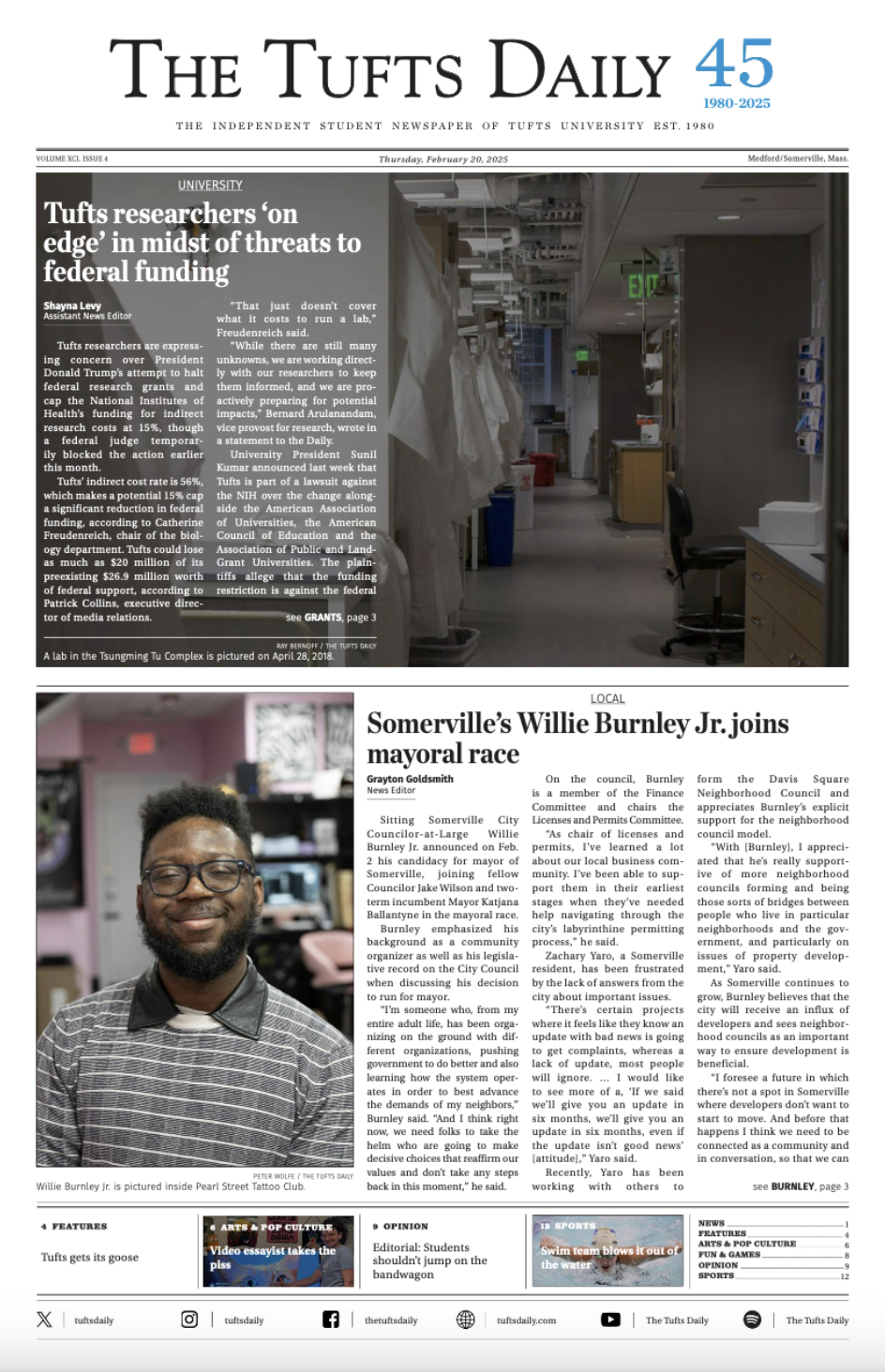Roya Hakakian is not an embittered woman, although perhaps she has reason to be. As an exiled member of the Iranian-Jewish community, Hakakian witnessed first-hand the violent and turbulent history of her native Iran during the 1970s and 1980s.
"I don't want to be a miserable person suffering in exile," Hakakian said. So she captured her experiences in a critically-acclaimed book, "Journey from the Land of No: A Girlhood Caught in Revolutionary Iran."
Hakakian visited Tufts' Hillel Center on Wednesday night for a book-reading and question and answer session attended by about 40 students and faculty.
"Why is Iran unique?" Hakakian asked in introduction. After giving a brief description of Iran's history and the role it has played in the Middle East, she answered her own question: "It is one of the few places there that serves as a reminder of what the United States has done wrong in the last 50 years," she said.
Hakakian was referring to the 1953 Central Intelligence Agency coup that deposed popular Prime Minister Mohammed Mossadegh and instated Shah Pahlevi with the aim of keeping Soviet influence out of Iran.
"That served as the single most important experience that would allow radical Muslims in Iran to rally a reasonable population against the United States," Hakakian said.
Set between the coup and the 1979 Iranian Revolution, Hakakian's book describes life as a member of a Jewish family during an increasingly unstable and radically religious setting.
Hakakian used personal experiences to illustrate the sociopolitical atmosphere in Iran, particularly the unfolding of the Iranian Revolution, the predominant theme of her lecture. She described how Ayatollah Khomeini organized a peaceful anti-government protest from exile in Paris. One night in 1978, Khomeini instructed Iranians to extinguish their lights at 9:00 p.m. and shout "Allah is great!" from the rooftops for 10 minutes.
An 11-year-old girl at the time, Hakakian recalled how frightening - and yet thrilling - it was for a Jewish family to huddle on their rooftop and hear shouts to Allah coming from every direction. "These were not orchestrated sounds," Hakakian said. "It was a rising and fading into the exhilarated throats" of a country.
In an even more personal story, Hakakian's told of her own mini-revolution within the larger context of the 1979 uprising. She described how in 1980, a "zealot Islamic woman showed up at our [Jewish] school and said 'I'm your principal now.'"
The new headmaster frequently held meetings with the all-female student body in an attempt to convert them not only to Islam, but to a radical new way of life. The girls were constantly lectured about the importance of full-body coverage and the temptation that only a few exposed hairs would incite in men.
After one particularly vehement speech, the girls in the school, including Hakakian, protested by vandalizing school property and shouting "down with our headmaster!"
"Never had mayhem brought more peace," Hakakian said. "That day, we proved that we could make our own destinies ... and claimed our share in Iran's revolution."
Ultimately, Hakakian described Iranians as very accepting and accommodating, although she noted that there was a large break between the public's sentiments and the country's government.
"The people who persecuted Jews in Iran were the same people who persecuted anyone who didn't fall in line with the government," Hakakian said. "Our neighbors never turned on us and we always maintained close ties with our Iranian friends."
She left the country in 1984 with her parents to join her three brothers, who had already left the country. "If we were ever to be reunited as a family, we needed to leave Iran," Hakakian said. "Had my brothers returned, they would have immediately been drafted into the army."
Hakakian has ambitions for her book beyond telling the story of her girlhood. "I wanted to do something that would have social and historical significance," she said.





